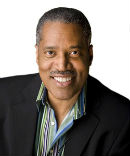 One of President-elect Donald Trump’s major campaign promises is to “repeal and replace” Obamacare.
One of President-elect Donald Trump’s major campaign promises is to “repeal and replace” Obamacare.
Vice President Joe Biden recently dared him to do so. Biden knows that 20 million Americans have health insurance that didn’t before Obamacare, and they represent 20 million stories on CNN, MSNBC and The New York Times — in the entire “health care is a right” crowd — when and if Trump follows through.
Sure, despite President Barack Obama’s promises to the contrary, some people lost their health care coverage and some people lost their doctors. And no, the average family did not save $2,500 per year as Obama insisted would be the case. And yes, health insurance premiums, copays and deductibles are going up even though Obama promised that his plan would “bend the cost curve” down.
All that matters to the anti-Trump media is that there is now an entire class of people to exert pressure against the repeal of Obamacare. Many Republicans say they want to keep “the good parts of Obamacare,” specifically the prohibition against denying insurance based on a pre-existing condition and forcing insurance carriers to keep a “child” on his or her parents’ policy until the child is 26. Republicans promised to not only repeal but to “replace” Obamacare. How can they do this — and replace it with what?
Republicans, despite their unanimous opposition against Obamacare, bought into at least two premises that its proponents argued. The first is that health care is a right — or, if not a right, at least something whose costs the federal government should reduce. The second is that, having made the decision to intervene in health care, the federal government possesses the knowledge, wisdom and judgment to reduce its costs to make it “affordable.” The feds, promised Obamacare advocates, can even make health care affordable without reducing quality.
For Obamacare to “work,” it is particularly important for young people to “buy in,” because while they are forced to spend on health care insurance they are unlikely to consume health care services. Obamacare transfers money from the pockets of young people (with a net worth smaller than that of seniors, by the way) into the pockets of older, health care consuming Americans.
If the goal were truly to make health care more affordable, Obamacare would be as laughably wrongheaded as other Obama boondoggles like “cash for caulkers” or “cash for clunkers.” No, the real goal is taxpayer-paid health care. Both ex-DNC chair Howard Dean and ex-Senate leader Harry Reid said so.
To reduce costs in health care, or, for that matter, in any commodity, is to unleash the free market. Health care is particularly shackled by restrictions and regulations too numerous to mention. Here is just one example.
In the biographical movie “Hacksaw Ridge,” a World War II medic, Private Desmond Doss, a pacifist, refused to carry a rifle. In the midst of the carnage, during the Battle of Okinawa, Doss carried wounded soldiers and rappelled them down a cliff face to safety then treated them alongside the medics. He was awarded a Medal of Honor for saving scores of lives.
If, however, after the war, Pvt. Doss had opened an office with a shingle saying “Doss’ trauma unit,” authorities would have thrown him in jail for practicing medicine without a license. His skills were good enough for the soldiers on the battlefield, but not good enough for civilians when Doss returned stateside.
On a question-and-answer website, this question was recently posed: How do Marines feel about Navy corpsmen?
Here are some of the responses: “Personal experience — I had my middle finger sewn back on by an E-5 corpsman. When a real doctor first saw it, he shouted, ‘Who did this?!’ I asked why and the Doc said that it was the best he had ever seen. I have full use and feeling in that finger and that was 40 years ago.”
“Personal experience — I was shot in the leg. An E-4 corpsman, assisted by an E-5, treated me. No doctor could have done any better than they did.”
“History: Beginning in WWII, most ships the size of destroyers and smaller had enlisted men — corpsmen — as their only medical expert. Usually it was a Chief Petty Officer, but often was an E-6 and some had only an E-5.
“Then, as now, they did everything — surgery included. In WWII and every war since then, U.S. soldiers have had a higher survival rate than any other country’s military (enemy or allies) and most of that medical triage and vital systems treatment was by enlisted corpsmen.
“Outside the service, enlisted corpsmen are by far the preferable hire for civilian EMT and rescue jobs.”
If Congressional Republicans were serious about making health care affordable, they should sell the voters on the free market. Where’s the slogan for that?
COPYRIGHT 2017 LAURENCE A. ELDER
DISTRIBUTED BY CREATORS.COM
Photo credit: Fibonacci Blue (Creative Commons) – Some rights reserved
 Larry Elder is a best-selling author and radio talk-show host. To find out more about Larry Elder, or become an “Elderado,” visit www.LarryElder.com. Follow Larry on Twitter @larryelder.
Larry Elder is a best-selling author and radio talk-show host. To find out more about Larry Elder, or become an “Elderado,” visit www.LarryElder.com. Follow Larry on Twitter @larryelder.
The views expressed in opinion articles are solely those of the author and are not necessarily either shared or endorsed by Black Community News.
 CURE News and Clergy Blog News and Commentary for Christians
CURE News and Clergy Blog News and Commentary for Christians



